New satellite imagery shows 214 villages almost totally destroyed in Rakhine
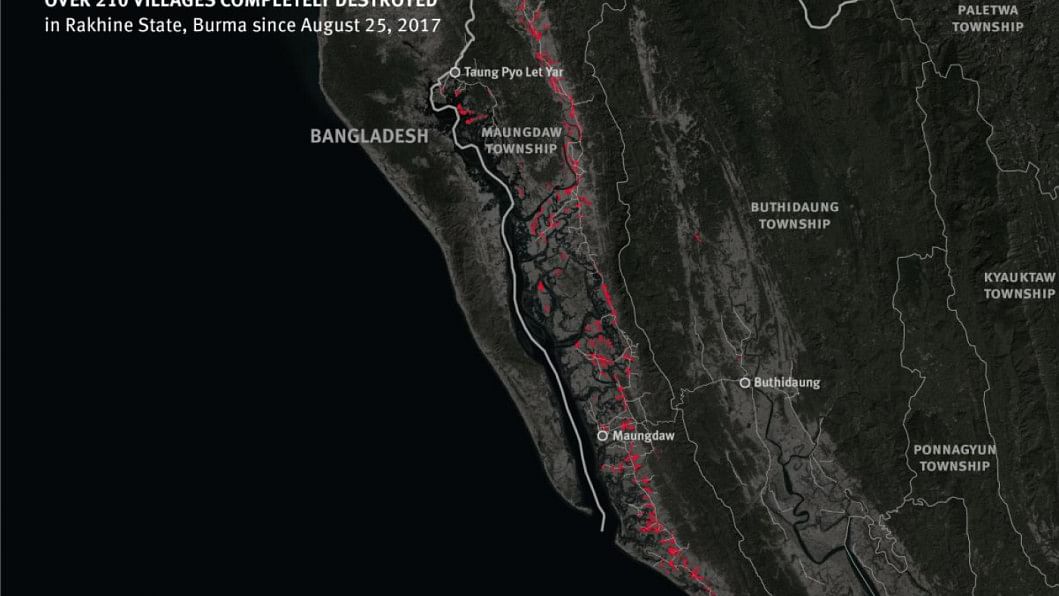
A new analysis of satellite imagery from Myanmar's Rakhine state shows 214 villages of Rohingyas almost totally destroyed, Human Rights Watch said today.
World leaders meeting at the United Nations should urgently adopt a General Assembly resolution condemning the Burmese military's ethnic cleansing, while the UN Security Council should impose targeted sanctions and an arms embargo, HWR said.
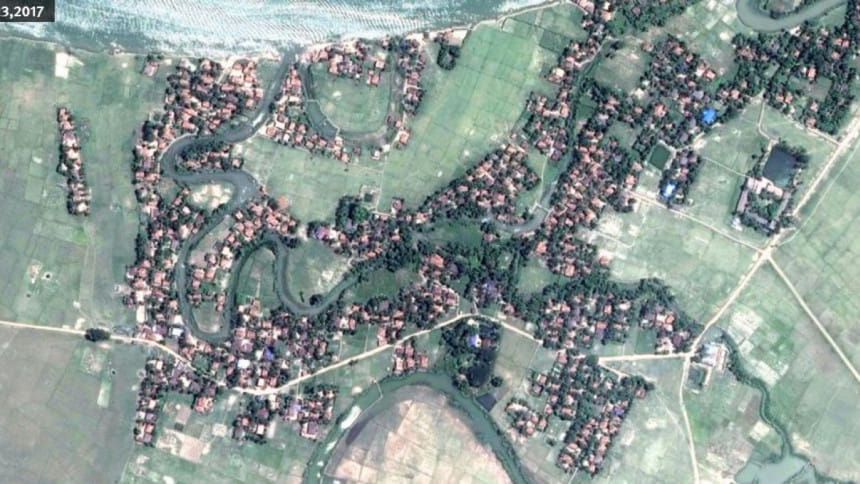
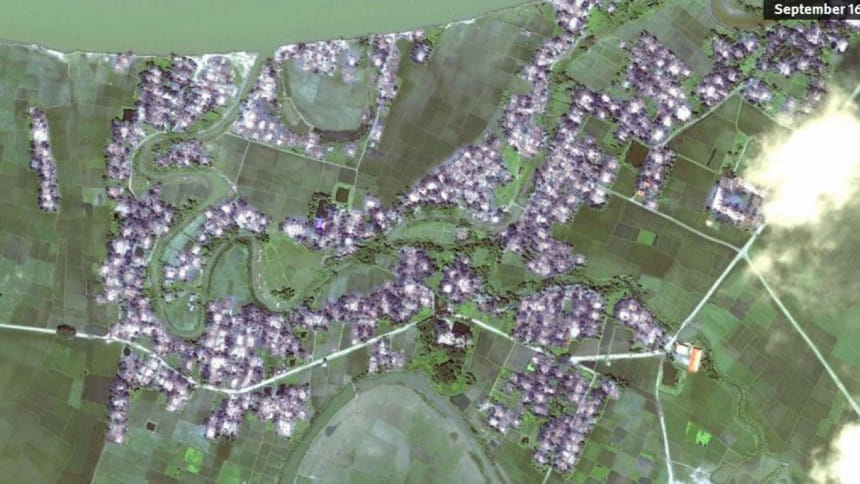
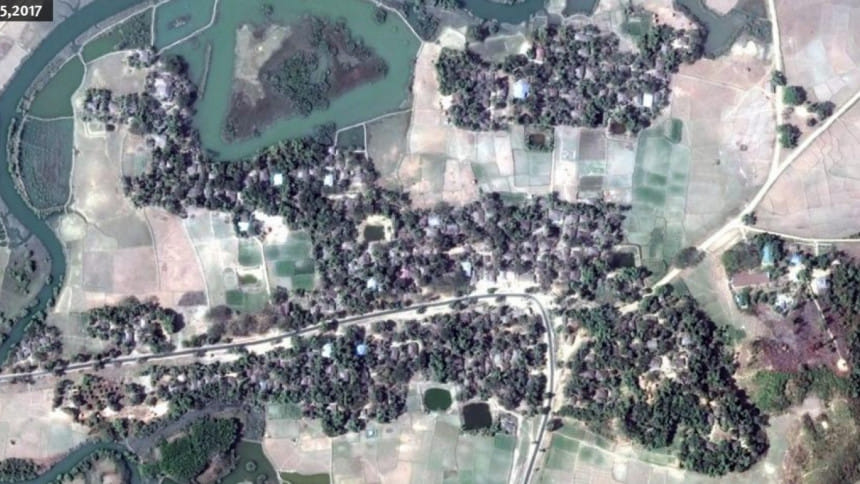
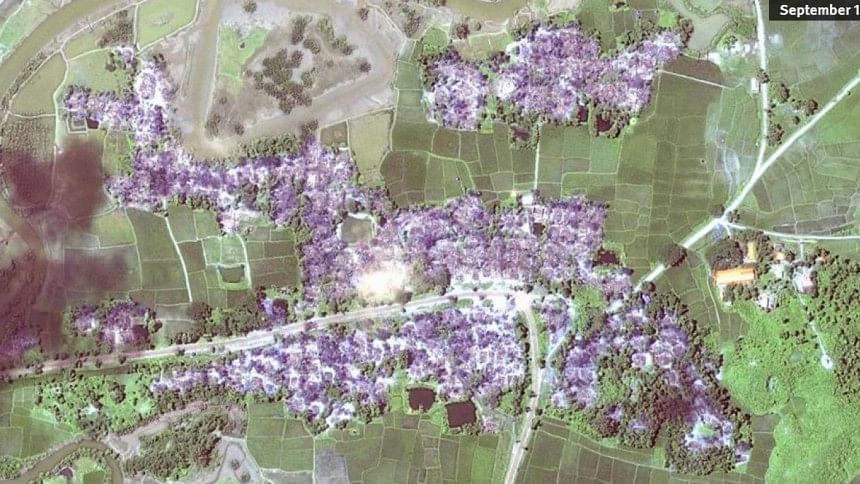
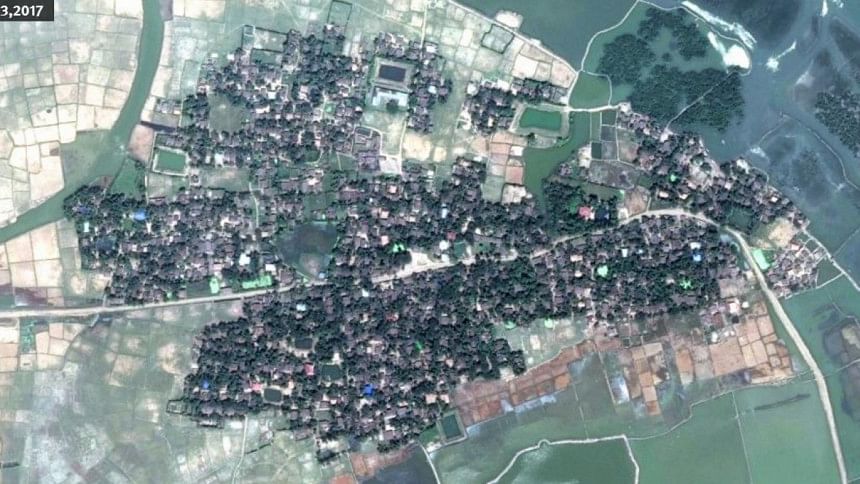
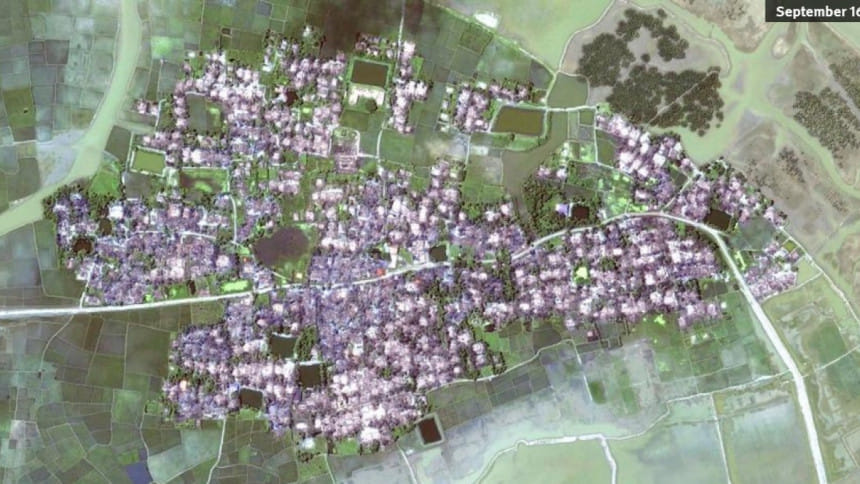
The international rights body HRW came up with the new satellite images when Myanmar de facto leader Aung Sun Suu Kyi gave her first address to the nation since the Myanmar army began ethnic cleansing after August 25 Rohingya insurgents attack.
In her speech, Suu Kyi condemned human rights violations and said anyone responsible would face the law but she did not address UN accusations that the military campaign in Rakhine state was "textbook" ethnic cleansing.
The detailed satellite images, made possible due to a clearing of monsoon cloud on September 16, 2017, reveal destruction from burning much greater than previously known.
The images show the destruction of tens of thousands of homes across Maungdaw and Rathedaung Townships, part of the Burmese security forces' campaign of ethnic cleansing that has forced over 400,000 Rohingya Muslims to flee to neighboring Bangladesh.
"These images provide shocking evidence of massive destruction in an apparent attempt by Burmese security forces to prevent the Rohingya from returning to their villages," said Phil Robertson, deputy Asia director at Human Rights Watch. "World leaders meeting at the UN should act to end this mounting crisis and show Burma's military leaders they will pay a price for such atrocities."
New maps of the damage show near-total destruction of the 214 villages seen in satellite imagery analyzed by Human Rights Watch, with more than 90 percent of the structures in each village damaged.
The images corroborate accounts gathered by Human Right Watch from refugees who have described arson, killing, and looting by the Myanmar military, police, and ethnic Rakhine mobs.
Myanmar military has rejected credible accounts of widespread abuses and said it is conducting operations against the Arakan Rohingya Salvation Army (ARSA), a militant group that attacked about 30 police posts and an army base on August 25, 2017, killing about a dozen members of the security forces, HRW said.
The Burmese military alleges that ARSA militants and Rohingya villagers have burned down their own homes but has provided no evidence to substantiate this claim. The scale, scope, and timing of the burnings, many of which occurred after hundreds of thousands of Rohingya had already fled, is inconsistent with this claim, the rights body said.
Burmese army commander Sr. Gen. Min Aung Hlaing recently linked Rohingya demands to be recognised as an ethnic group under Burmese law with the army's actions. Using "Bengali," a Burmese ethnic slur for Rohingya, he stated in a Facebook post that, "They have demanded recognition as Rohingya, which has never been an ethnic group in Myanmar. [The] Bengali issue is a national cause and we need to be united in establishing the truth."
On September 15, the Burmese Government Information Committee stated that, "Those who fled the villages made their way to the other country for fear of being arrested as they got involved in the violent attacks" – implying that the hundreds of thousands of men, women, and children who fled to Myanmar were responsible for militant attacks against the government.

 For all latest news, follow The Daily Star's Google News channel.
For all latest news, follow The Daily Star's Google News channel. 


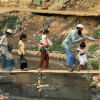
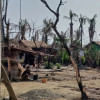
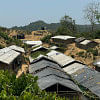




Comments